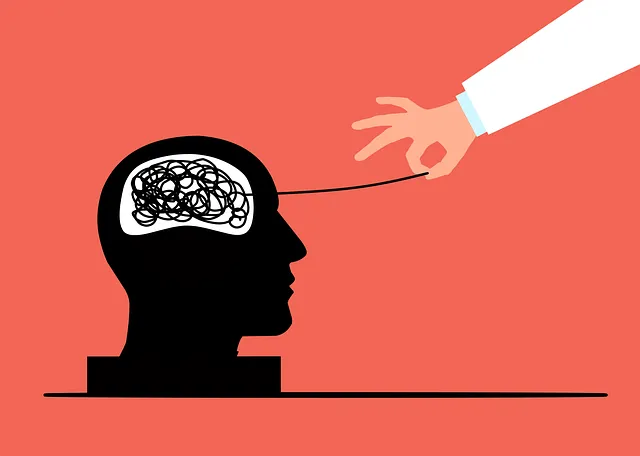Denver Kaiser Permanente is at the forefront of transforming mental wellness assessment with innovative, patient-centered tools that combine technology, evidence-based practices, and cultural sensitivity. Their self-assessment frameworks cater to diverse needs, covering emotional well-being, stress management, and social connections, while promoting resilience and work-life balance. Through continuous development and feedback integration, these tools empower individuals to take charge of their mental health journeys, aligning with Denver Kaiser Permanente's commitment to comprehensive care and improved quality of life.
In today’s digital age, self-assessment tools play a pivotal role in enhancing mental wellness management. Recognizing the growing demand for accessible mental healthcare solutions, Denver Kaiser Permanente has pioneered an innovative approach to mental wellness assessment. This article delves into the development of effective self-assessment frameworks, drawing insights from Denver Kaiser Permanente’s successful model. We explore key components, implementation strategies, and continuous improvement techniques, offering valuable guidance for enhancing mental health services through digital tools.
- Understanding the Need for Self-Assessment Tools in Mental Health Care
- Denver Kaiser Permanente's Approach to Mental Wellness Assessment
- Key Components of an Effective Self-Assessment Framework
- Implementation and Continuous Improvement Strategies
Understanding the Need for Self-Assessment Tools in Mental Health Care

In today’s fast-paced world, mental wellness is an integral part of overall health and well-being. However, many individuals struggle to access appropriate tools for self-assessment, which is a crucial step in managing their mental health effectively. Denver Kaiser Permanente mental health services recognize this gap and are committed to developing innovative solutions, such as self-assessment tools, to empower individuals to take charge of their emotional well-being.
Self-assessment tools play a pivotal role in early intervention and prevention strategies for various mental health conditions. By providing accessible and user-friendly resources, these tools enable individuals to monitor their mood management skills, identify triggers, and gain insights into their emotional healing processes. Incorporating evidence-based practices and emotional well-being promotion techniques, such as mindfulness exercises or cognitive behavioral therapy (CBT) strategies, these self-assessment tools can be game changers in promoting mental wellness on a personal level.
Denver Kaiser Permanente's Approach to Mental Wellness Assessment

Denver Kaiser Permanente has pioneered an innovative approach to mental wellness assessment, integrating advanced technologies with a patient-centered model. Their system meticulously evaluates individuals’ psychological well-being by considering various factors such as symptoms, lifestyle, and social context. This comprehensive method ensures that each patient receives tailored support, addressing their unique needs and challenges.
The organization places a strong emphasis on Cultural Sensitivity in Mental Healthcare Practice, ensuring that assessment tools are adaptable to diverse cultural backgrounds. They also offer Trauma Support Services, recognizing the impact of traumatic experiences on mental health. Additionally, Denver Kaiser Permanente’s Community Outreach Program Implementation plays a pivotal role in expanding access to mental health services, especially for underserved populations.
Key Components of an Effective Self-Assessment Framework

An effective self-assessment framework for mental wellness should incorporate several key components to ensure it’s comprehensive and actionable. Firstly, it must include a diverse range of questions designed to capture different aspects of an individual’s mental health, such as emotional well-being, stress levels, and coping mechanisms. This can be achieved by integrating Denver Kaiser Permanente mental health services’ evidence-based practices and tools, which have been refined over time to address common mental wellness issues.
Additionally, the framework should foster empathy building strategies and social skills training, promoting self-awareness and interpersonal connections. By encouraging individuals to reflect on their interactions and emotional responses, these strategies can help prevent burnout and enhance overall mental resilience. The inclusion of questions related to work-life balance, stress management techniques, and support systems further strengthens such a framework, aligning with essential aspects of Burnout Prevention initiatives.
Implementation and Continuous Improvement Strategies

The development of self-assessment tools for mental wellness is an ongoing process that requires strategic implementation and continuous improvement. At Denver Kaiser Permanente mental health services, we’ve found success by integrating these tools into patient care plans, empowering individuals to actively participate in their mental health journeys. Regular feedback from patients and healthcare providers is invaluable, guiding modifications and updates to ensure the tools remain relevant and effective.
To enhance our approach, we encourage the incorporation of self-awareness exercises and conflict resolution techniques within these assessments. By fostering mental health awareness, individuals can better identify signs of distress and employ healthy coping mechanisms. This proactive mindset aligns with Denver Kaiser Permanente’s commitment to providing comprehensive care that addresses both physical and mental well-being, ultimately leading to improved outcomes and elevated quality of life.
The development of mental wellness self-assessment tools is a vital step towards enhancing access to mental health care. As highlighted by Denver Kaiser Permanente’s innovative approach, these tools can democratize mental healthcare, enabling individuals to proactively manage their well-being. By focusing on key components such as accessibility, user-friendliness, and evidence-based practices, we can create effective frameworks that support both personal reflection and professional diagnosis. Continuous improvement strategies, inspired by Denver Kaiser Permanente’s model, ensure these tools remain relevant and impactful in the evolving landscape of mental health services.






